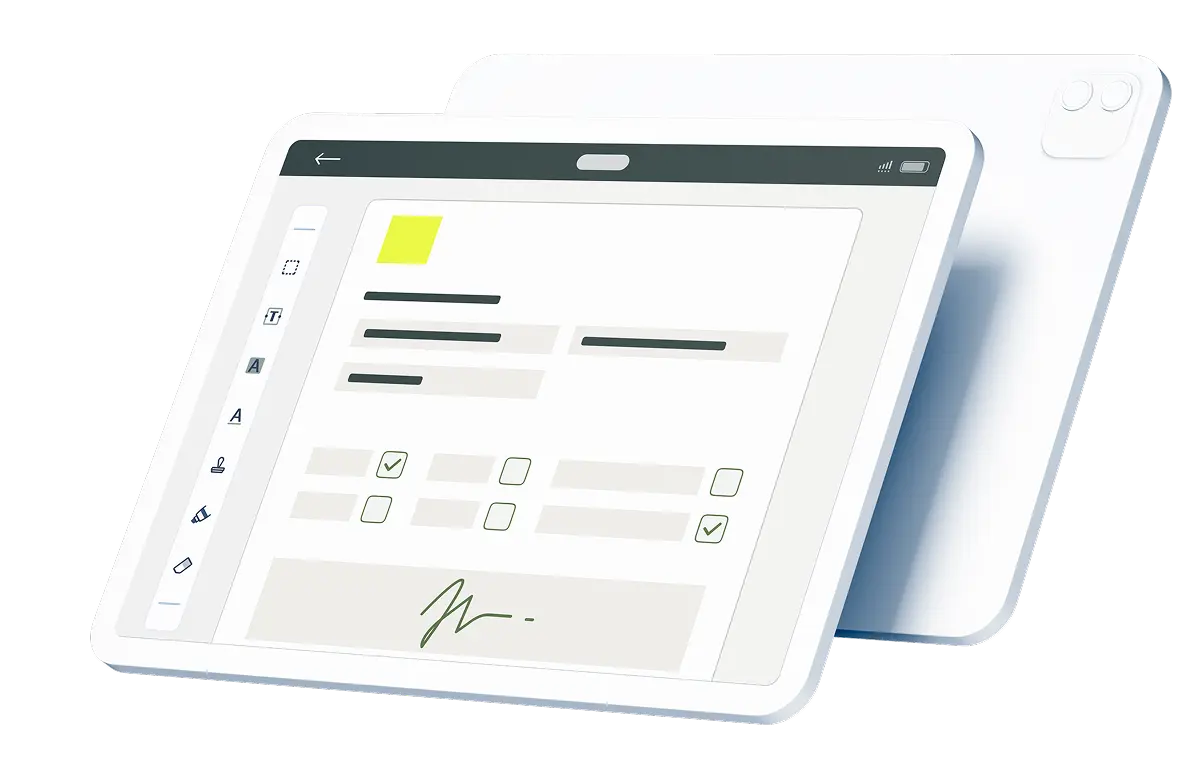Quality control plays an integral role in building a solid business with satisfied customers. Companies use standardization to achieve this. One of the simplest ways to ensure standardized processes at an HVAC company is to use an HVAC install checklist template. Your team could also create checklists for other critical business functions. Automating these checklists makes them even more effective.
Contents:
- What Is HVAC Commissioning?
- What Is the Importance Of An HVAC Commissioning Report Template?
- What Should You Include in Your HVAC Commissioning Checklist?
- What Are the Benefits of Automated Checklists vs. a Printed Document?
- The Checklists Are Always Available
- It’s Easier To Centralize Documentation
- You Can Include Provisions for Compliance
- Cloud Storage Is More Convenient and Secure
What Is HVAC Commissioning?
The commissioning of HVAC systems refers to testing and checking the installation of HVAC systems for efficient performance. It involves inspecting the equipment, calibrating controls and running quality assurance tests to ensure the building operates as it should. All of these steps contribute to the overall process of maintaining top-notch quality controls.
What Is the Importance Of An HVAC Commissioning Report Template?
A checklist is a comprehensive guide that helps you cover all aspects when performing an important task. Using one ensures that no area is left unchecked, making it easier to detect problems or points where additional work needs to be done. Additionally, it can save time by providing instructions on how long each step should take and any tools or materials required.
Another benefit of using an HVAC commissioning checklist template is that it provides a baseline for your work. This allows you to compare the results of future HVAC commissioning processes with that baseline, so you can track progress over time and see how your company has improved.
What Should You Include in Your HVAC Commissioning Checklist?
No two checklists are identical across companies ― nor should they be. Managers should carefully evaluate the steps workers take to complete their jobs and design checklists around this. Training, location and available equipment are just some of the factors that could create differences across companies. Nevertheless, here are some critical items that most companies include:
- Project Name and Location: This helps you ensure that you’re working on the right job and that all work performed is recorded under its appropriate listing.
- Date: Knowing exactly when you completed specific projects can help you reconstruct a timeline of events if disputes later arise.
- Verification of Pumps: You should test the proper operation of pumps, valves, and other mechanical components like fans. If these don’t work as they’re supposed to, it could hurt the entire project.
- Calibration: The HVAC commissioning checklist should also include steps to verify pressure and temperature readings. This allows you to ensure that the system displays accurate data and provides the opportunity for your team to diagnose problems early.
- Equipment Used: Asset management can be complex when workers take equipment to sites. You can include the main items you need to track to quickly determine who used them at what sites and when.
- Additional Notes: This provides the opportunity for workers to make additional commentary. This might become necessary if they want to share additional information not covered by the rest of the checklist.
What Are the Benefits of Automated Checklists vs. a Printed Document?
Chances are that your company already uses checklists to standardize work processes. For example, you might have an HVAC testing and commissioning PDF that has served you well for decades. Such a document provides an excellent first step toward best practices for quality control but ultimately falls short of the mark. Here are some reasons you should invest in an automated or electronic solution.
The Checklists Are Always Available
Paper checklists add to the equipment and material workers need to take to sites when working. Using electronic copies and software eliminates this need so that employees always have the documents they need to fill out. Using electronic copies also removes the hassle of printing and storing these documents.
It’s Easier To Centralize Documentation
How big is your business? If you have several branches or serve a wide geographic area, electronic software makes it easier to expand your standardization across all branches. When completed, these checklists go to one central location so that you can centralize related processes. For example, you only need one person to review these checklists versus having managers at each location.
You Can Include Provisions for Compliance
OSHA guidelines require companies to provide a safe working environment for employees. Companies cannot guarantee this when workers go to commercial or residential sites to install HVAC systems. However, checklist items can include provisions that show a commitment to keeping employees safe. For example, you could add items related to safety gear checks.
Cloud Storage Is More Convenient and Secure
Cloud storage does a much better job of securely and conveniently storing data than physical filing. It also makes it easier to access these documents via mobile devices when you are away from the office. This can benefit employees when they need to reference checklist items while on site or need instructions sent to them immediately due to an emergency.
Companies can leverage these benefits and more by using Fluix as their automation tool. We make it easy to create checklists for the commissioning of HVAC systems and countless other processes that are critical to your business.

